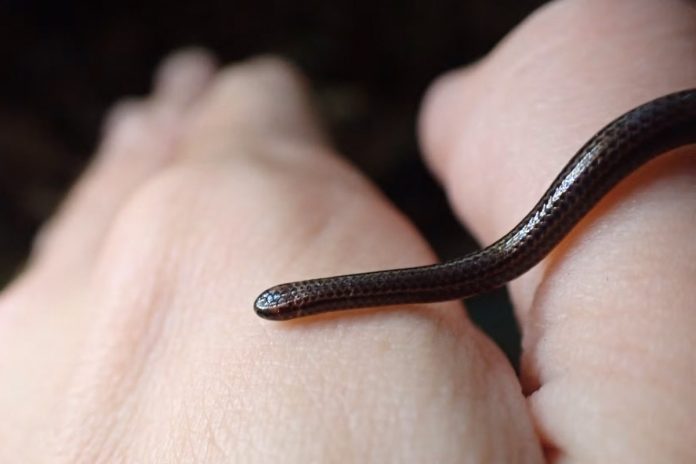
A snake so small it could easily be mistaken for a worm has been rediscovered in Barbados nearly 20 years after it was believed to have been lost to science.
The Barbados threadsnake (Tetracheilostoma carlae) was found during an ecological survey in March, conducted by the Barbados Ministry of the Environment and National Beautification in partnership with conservation group Re:wild.
The elusive reptile was discovered hiding under a rock in central Barbados. “Barbados threadsnakes are blind snakes, so they’re very cryptic,” said Connor Blades, a project officer with the Ministry who helped make the discovery. “They’re quite rare also, it seems. There have only been a handful of confirmed sightings since 1889, so there are not many people who have ever seen it, unfortunately.”
Measuring just 8 to 10 centimeters (three to four inches) at full length, the Barbados threadsnake is the world’s smallest known species of snake, small enough to nearly fit on a U.S. quarter coin. It is identified by orange stripes along its back, eyes positioned on the sides of its head, and a small scale on its snout.
The discovery was made by Blades and Justin Springer of Re:wild after more than a year of careful searching. “When you are so accustomed to looking for things and you don’t see them, you are shocked when you actually find it,” Springer said. “You can’t believe it. That’s how I felt. You don’t want to get your hopes up too high.”
The snake, found beside an earthworm, was taken to the University of the West Indies for microscopic analysis. Because it closely resembles the Brahminy blind snake, an invasive species, experts needed to confirm the identity before releasing it back into the wild.
Only two percent of Barbados’ primary forest remains intact, much of it lost to agriculture over the past four centuries. This makes the Barbados threadsnake highly vulnerable, especially as it reproduces sexually and lays just a single egg per clutch. In contrast, the Brahminy blind snake can reproduce without mating, allowing for faster population growth.
Springer emphasized the importance of the find, not only for scientific records but for conservation efforts. “The threadsnake’s rediscovery is also a call to all of us as Barbadians that forests in Barbados are very special and need protection,” he said. “Not just for the threadsnake, but for other species as well. For plants, animals and our heritage.“



